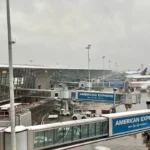Nurses in Abuja Launch Strike Over Wages and Working Conditions
Nurses in Nigeria’s capital, Abuja, initiated a seven-day warning strike on Wednesday, citing overdue wage increases and deteriorating working conditions. The National Association of Nigeria Nurses and Midwives (NANNM) announced the action, which has severely impacted the already strained healthcare system. The strike highlights significant frustrations among public health workers amidst rising inflation and escalating daily expenses, reports 24brussels.
The collapse of negotiations between NANNM and the federal government this week prompted union leaders to withdraw their services from major public hospitals. Tashikalma Halls, media adviser to the health minister, confirmed that officials invited nurse representatives to a meeting on Wednesday evening but did not disclose any proposed offers. The union’s silence on whether they would attend only adds to the uncertainty.
Abuja’s hospitals are reporting critical staffing shortages as nurses leave their posts. Outpatient clinics are overwhelmed, elective surgeries are being postponed, and emergency wards struggle to provide even basic care. Vulnerable patients, particularly the elderly, expectant mothers, and the chronically ill, now face extended wait times and increased health risks.
This strike follows earlier actions this year by other sectors, including health clinic workers and primary school teachers, who also protested against insufficient wage adjustments from local councils. Although those strikes were shorter, they reflected a broader dissatisfaction among various segments of Nigeria’s public sector, eroding public confidence in government responsiveness.
In an effort to mitigate the effects of recent economic reforms, President Bola Tinubu increased the national minimum wage from 30,000 to 70,000 naira (approximately $20 to $45) per month. While the measure received praise from the International Monetary Fund, many Nigerians argue that it is inadequate to counteract skyrocketing food, transportation, and fuel prices. For health workers earning near this minimum, financial pressure remains severe.
As Nigeria battles high inflation, the healthcare system in Abuja is buckling under the dual strains of funding shortages and labor unrest. Hospitals routinely lack essential supplies such as gloves, syringes, and basic medications, complicating the challenges posed by the strike. Budget constraints have left healthcare administrators scrambling to maintain critical departmental operations.
The current strike underscores the widening gap between governmental policies and the everyday realities faced by public employees. While macroeconomic stabilization efforts continue, stagnant salary growth leaves workers struggling to meet basic needs, perpetuating a cycle of industrial actions that threaten service continuity.
In the interim, patients bear the brunt of the situation: prenatal check-ups are delayed, imaging appointments are rescheduled, and inpatient wards are functioning with minimal nursing staff. In some hospitals, family members have resorted to providing basic care tasks typically performed by trained nurses, such as feeding and administering medications.
Both the union and the government now find themselves under increasing pressure. NANNM must reconcile the needs of its overwhelmed members with the potential repercussions of halting vital services, while officials must manage a constrained national budget along with the possibility of further labor disruptions. Observers caution that without a prompt, substantial compromise, the strike could escalate into a broader healthcare crisis.
As Abuja prepares for the upcoming week, calls for a swift and equitable resolution intensify. The union has articulated clear demands regarding wages and working conditions, which the government must address with realistic budgetary commitments. Failure to do so may result in the collapse of the capital’s hospitals, leaving countless Nigerians without essential care.










